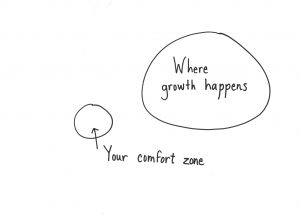I recently attended a discussion led by Steve Gladis addressing the idea that we need to have a framework for “Tough Talks” – conversations to resolve relational conflicts.
Our cultural struggle with this negatively impacts business to the tune of billions of dollars a year, and leads to dramatic frustration and stress just tiptoe-ing around the elephant in the room.
Painfully, today I had a reminder of how easy it is to make a mistake. I mis-communicated with two colleagues – I made an honest mistake, and ended up wasting their time.
Now what? How do I fix it? I can’t replace their time, but I need to make amends. Dr. Gladis offered a framework to address when others let us down, and two words stuck with to me:
“Humility” and “initiative”
Humility – How can I demonstrate humility? Clearly this was my fault, even though I didn’t intend to do it – that’s really not the point. From their perspective, the outcome is as if I did it on purpose.
First I can acknowledge my fault to myself. I can admit that I did it.
Then I can be ready to admit it to them. Humility doesn’t mean thinking less of yourself, it mostly means just thinking of yourself less often. If I’m going to think about their perspective, I can be ready to admit fault.
Initiative – What will I do about it? In this case, I was intentional to reach out to each of them to admit my mistake, to identify with the frustration and wasted time I caused, and then in writing, specifically asked each of them to forgive me.
As a leader, humility and initiative are key parts of Raising Your Game.

